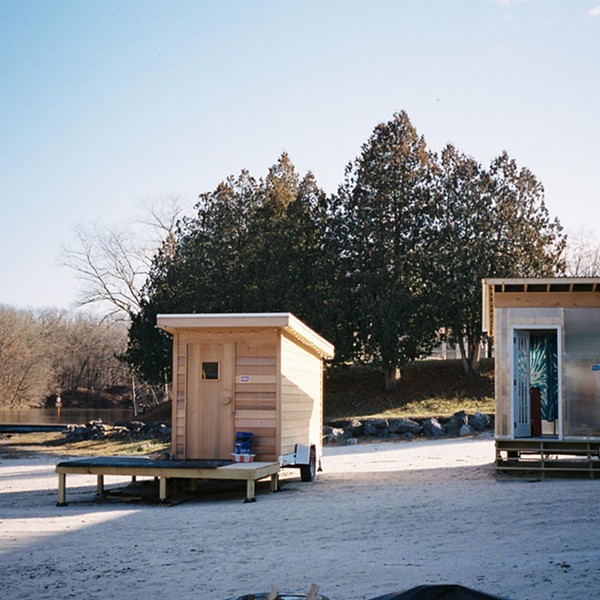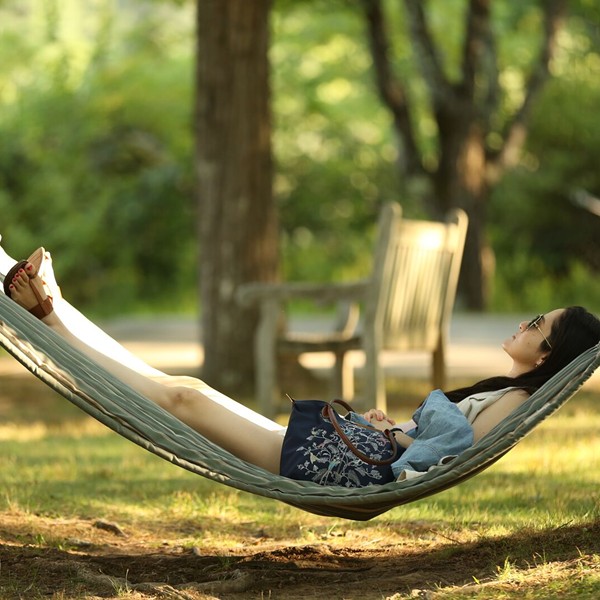If you’ve enjoyed a hot tub experience, you know that the relaxation and skin sensorama it induces is benefit enough. It’s also a psychological stress reducer and has healthful impacts on physiology. Lolling in a natural hot spring or a heated large tub or pool has the combined benefits of increasing body temperature and relieving gravity’s usual tug on the skeleton and tissues. Body temperature and heart rate gradually rise, but without also triggering a rise in blood pressure (as exercise does) because blood vessels dilate with the heat. As a result, blood delivery improves, bringing in nutrients and oxygen and taking away toxins from areas that may otherwise suffer sluggish flow. As the body’s natural cooling mechanism kicks in (aka sweating), pores all over the skin release moisture that carries away chemical wastes. Massaging jets of water or air further enhance all this fluid movement, and just plain feel wonderful.
Heating yourself also supports immune cell travel among your tissues and nurtures tissue repair. The combination of warmth and freedom of movement, thanks to the body’s buoyancy in a tub of water, speeds healing from injuries and surgery, improves arthritis symptoms, helps those who are obese or have restricted mobility, reduces the need for pain medication, loosens muscles before a workout or soothes them afterward, and improves sleep.
Note that hot-water soaking is not advised without first checking with a medical expert, or for the very young, the elderly, pregnant women, and people with cardiovascular or other serious illness. The intersection of hot tubs and the use of alcohol, drugs, or medications that cause drowsiness has proven fatal. And though exercising while in a tub may sound like a great workout, doing so can dangerously ratchet up body temperature and stress the heart.
Mineral Soaks
In this country, public heated baths had a big heyday in the 1800s, but today, large venues have mostly given way to smaller resorts with private soaking rooms that offer tubs by the hour or as one of multiple body treatments during a day, weekend, or weeklong retreat. In the Hudson Valley, Saratoga is the destination spot for a natural mineral soak, as it has been for over a century. Roosevelt Baths and Spa is one of several spas in the area that draw from natural mineral springs.
The Roosevelt is a historic bathhouse built in 1935 using New Deal money, thanks to President Franklin D. Roosevelt, who had earlier taken great interest in the mineral waters’ healing potential. While New York’s governor, Roosevelt had hired an architect to study the spas in Europe as a first step in his vision to create the grandest spa in the world. Renovated and reopened to the public in 2004, Roosevelt Baths and Spa is within a state park and offers 43 private tubs. The 50-degree naturally effervescent mineral water is mixed with a small amount of fresh hotter water (or you can request 100 percent heated mineral water, with advance notice).
Michelle Calzada, director of Roosevelt Baths and Spa, says that the pleasure of a mineral bath is hard to understand until you’ve had one. “Our water, from the Lincoln Spring, has the highest carbonation in Saratoga, and because of the effervescent bubbles, you float. The water has 18 different minerals and trace elements that help different systems of the body.” Soaks are $25 for 40 minutes; afterward, you can have a massage in the same room, or enjoy the steam room. “We have a safe, clean, family-oriented environment in its own little development,” Calzada adds. In addition, the Roosevelt was deemed one of 10 most “green” vacation spots by the state’s Department of Environmental Conservation in 2009 for its efforts to save energy, reduce waste, and conserve resources.
Because mineral hot springs occur only where the Earth deems appropriate, not where it’s convenient to busy people, a second best is adding goodies to mimic mineral water, like dry salts from celebrated mineral sources such as the Dead Sea, or to create healing and rejuvenating solutions using plants or oils. For instance, at Mohonk Mountain House in New Paltz, guests to the spa can soak year round in an outdoor heated, jetted pool to which salts from the Dead Sea are added daily. “The minerals are fantastic—magnesium, potassium, calcium chloride, bromides, and many others,” says Mohonk Spa Director Barbara Stirewalt. “They have several significant benefits, and we know that people like it.”
















